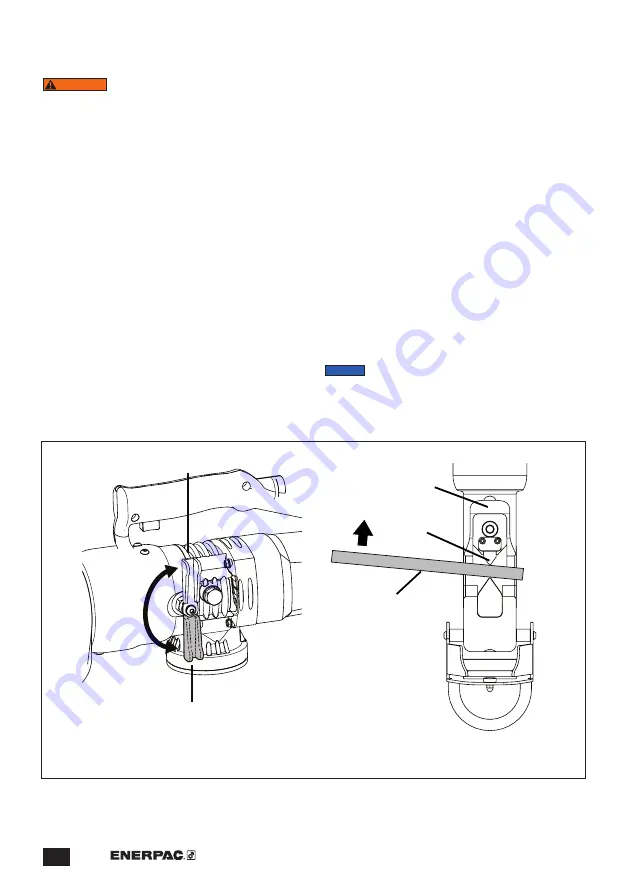
20
Figure 15, Piston Manual Retract Procedure
2
1
3
Position 1
Position 2
Key:
1. Cutting Head
2. Piston
3. Bar (user-supplied)
Piston Release Lever
4. Using a rigid piece of steel bar, manually push the
piston inside the cutter until it is returned to the
“home” position. See Figure 15, item 3. This should
dislodge any dirt or other material that had prevented
the piston from returning during normal operation.
5. Move the piston release lever fully clockwise to
return the cutter to normal operation. See Figure 15,
position 1.
6. Connect cutter to AC power supply. Quickly depress
and release the trigger repeatedly until the piston is
advanced about 3/4 inch [19 mm].
7. Disconnect cutter from AC power supply to prevent
accidental motor start-up during cleaning procedures
in the following step.
8. Clean the exposed portion of the piston. Remove any
debris, chips or dirt from this area. See Figure 15,
item 2.
9. Connect cutter to AC power supply and test cutter
for proper operation. Verify that piston automatically
returns to the “home” position after the trigger is
released and the piston release lever is moved to
position 2.
NOTICE
If the piston still does not fully retract after
performing the previously described cleaning procedure,
the cutter should be inspected and serviced by an
Enerpac authorized service center.
11.0 CLEANING THE PISTON AREA
NOTICE:
WARNING
Always disconnect cutter from AC
power supply before cleaning the piston head area
or before manually retracting the piston. Failure to
observe this precaution could result in accidental
start-up during cleaning procedures. Serious
personal injury could result.
11.1 Cleaning and Inspection
• Keep the piston area clean to ensure that the piston
fully returns after it advances to maximum stroke.
• Remove any built-up dirt or debris from the cutting
head, the piston and moving blade.
11.2 Manually Retracting the Piston
The piston may fail to fully retract if debris is wedged
under or beside the piston and moving blade.
If this condition occurs, it may be necessary to manually
retract the piston into the cylinder to fully return the
piston to the “home” position.
Refer to the following steps for procedure:
1. Disconnect cutter from AC power supply to prevent
accidental motor start-up during the following steps.
2. Place the cutter horizontally on a stable work surface.
3. Move the piston release lever counterclockwise
to manually release the piston. See Figure 15,
position 2.
Position 2 (piston release)
Position 1 (normal operation)
Summary of Contents for ECCE26
Page 24: ...WWW ENERPAC COM...





































